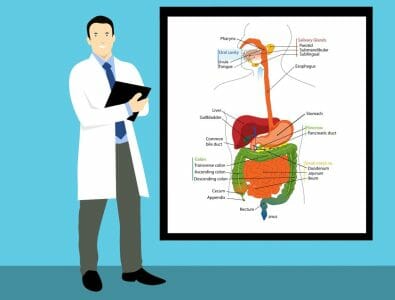Each person, regardless of age or gender, can develop cancer. Early cancer detection is essential for effective treatment and better results. This article will cover six typical cancer symptoms and information on the most at-risk.
Why Is It Important to Find Cancer Early?
Early cancer detection is crucial because it improves the likelihood that therapy will be effective and the result will be better. Frequent cancer screening exams can aid in the early detection of the disease when it is simpler to treat and may not have spread to other body parts. If cancer isn’t detected early, it can grow and spread, making treatment more challenging and potentially decreasing the likelihood that the patient will survive. Thus, it’s crucial to have regular cancer screenings and to visit a doctor if you experience any symptoms or physical changes.
Six Signs of Cancer
Knowing the symptoms will help you catch the condition early and receive the appropriate care. Cancer signs and symptoms can include:
- Cough, Hard Breath, and Chest Pain
These symptoms could result from tumors developing in the tissues around the lungs or other organs. A cough could be chronic, generate blood or phlegm, or worsen with time. A tumor blocking the airways might cause wheezing or shortness of breath. Chest pain may be brought on by lung inflammation or pressure from a developing tumor. Although other illnesses can produce these symptoms, seeing a healthcare professional for a precise diagnosis is crucial.
- Changes in Your Bowel Habits and Excessive Bloating
Constipation, diarrhea, and severe bloating are examples of changes in bowel habits that could be signs of colon cancer. Increasing belly girth, discomfort, or a sense of fullness can contribute to bloating. Remembering that other illnesses can also bring on similar symptoms is significant. It is crucial to consult your healthcare physician if you encounter any of these symptoms. Cancer early identification can boost treatment options and enhance results.
- Feeling Tired and Unwell
Feeling run down and ill may indicate various issues, including hormone changes. Low testosterone and a lack of growth hormones impact our bodies differently. Knowing how to cycle HGH and testosterone properly to avoid adverse side effects is crucial if you are considering hormone replacement therapy. It’s critical to remember that these symptoms can indicate cancer. If you have these symptoms, you must immediately consult a doctor for a proper diagnosis and treatment.
- Unexplained Bleeding
Bleeding that is unusual, such as occurring between periods, after intercourse, or after menopause, may indicate malignancy. It is crucial to pay attention to any bleeding that doesn’t make sense because of this. This could mean a digestive, reproductive, or urinary system issue. The presence of pain, exhaustion, and weight loss are other signs. If you suffer any inexplicable bleeding, you must visit a doctor to rule out any dangerous underlying illnesses, including cancer. The likelihood of a successful outcome can be increased by early identification.
- New Lumps and Moles
Sometimes, new moles and lumps are a precursor to skin cancer. The most prevalent form of cancer in the country is skin cancer. Early detection and treatment can considerably increase the likelihood of a favorable outcome. You should periodically examine your skin for any changes, such as new growths or variations in the look of moles or existing lumps. If you observe any worrisome changes, speaking with a healthcare professional for a thorough evaluation and possible treatment options is crucial.
- Tummy or Back Pain
Back or stomach pain is a possible sign of cancer. Tumors of the pancreas, kidneys, or digestive system may be the source of these difficulties. Although these symptoms do not always indicate that you have cancer, they should not be disregarded. You should visit a doctor if you encounter any odd symptoms, such as chronic back or stomach pain. It’s critical to seek medical assistance as soon as possible because early detection is crucial to cancer treatment.
What People Are at Higher Risk?
Everyone can get cancer, but there are some things you can do to lower your risk of getting it. It might be beneficial to reduce your risk if you are aware of these factors and take action. A few of these include:
- Age: The most significant risk for cancer is old age. Our cells develop DNA damage with aging, which can result in malignant alterations. Inheritable gene mutations can increase the risk of getting a particular type of cancer, another way genetics affect cancer risk.
- Family history: People may be more likely to get cancer if a close relative, such as a parent or brother, has already battled the disease. Breast and ovarian cancer risk can also be raised by inherited genetic abnormalities like BRCA1 and BRCA2, which are known to occur in families.
- Lifestyle factors: Lifestyle factors can potentially raise the risk of cancer. Almost one-third of cancer fatalities are caused by the most common preventable cause, which is tobacco smoking. The chance of developing various cancers, including liver and breast cancer, can also rise with excessive alcohol consumption.
- Substance exposure: Substance exposure can also raise the risk of developing cancer. Environmental exposure to chemicals and radiation are two examples. Cancer risk can be decreased by limiting exposure to these factors.
- A higher cancer risk is associated with obesity and a sedentary lifestyle. Breast, colon, and endometrial cancers are just a few of the many cancers that can be prevented by maintaining a healthy weight and engaging in regular physical activity.
- Certain cancers are more likely to affect people with weaker immune systems, whether due to illnesses or immunosuppressive drugs.
Early cancer detection is essential for effective treatment and better results. If you or a loved one are experiencing any common cancer symptoms discussed in this article, don’t ignore them. Take action now and schedule an appointment with your doctor for a proper diagnosis. Making healthy lifestyle choices can help lower a person’s risk of acquiring cancer, which some variables can increase.
